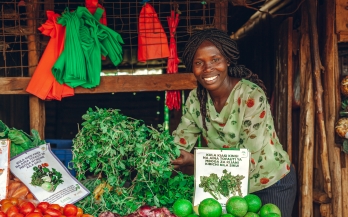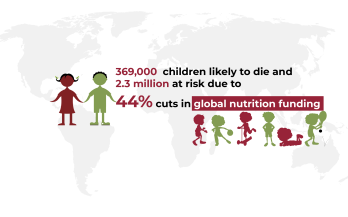For Immediate Release
Urgent Call for Accelerated Action on Climate-Nutrition Integration – Latest Assessment
Sub-Saharan Africa, Latin America and the Caribbean are leading the way
Strongest integration is at the nexus of gender, nutrition and climate change, with 69% ccGAPs showing a clear intention to address climate and nutrition in tandem.
Very low levels of integration in the private sector – 79% of the 350 companies assessed had zero integration.
London/Geneva, November 07, 2025: The Initiative on Climate Action and Nutrition (I-CAN) released its latest worldwide assessment of the integration of nutrition and climate action. The report analyses 16 key indicators across 198 countries, revealing that some policy areas have made progress – particularly national nutrition and adaptation plans.
Incofin Investment Management and the Global Alliance for Improved Nutrition (GAIN), through the fund ‘Nutritious Foods Financing Facility (N3F)’, announce two new investments in East Africa’s dairy sector: Mujuni Ventures Limited in Uganda and Narumoro Dairy in Kenya.
These investments will improve access to nutritious foods for underserved populations, while strengthening local food systems and supporting smallholder farmers. With these additions, the Fund now counts ten active investments across Sub-Saharan Africa.
Incofin Investment Management and the Global Alliance for Improved Nutrition (GAIN), through the Nutritious Food Financing Facility (N3F), have announced new investments in three pioneering food enterprises in East Africa: Soy Afric in Kenya, and Mkuza Chicks Ltd and Rainbow Haulage in Tanzania.
On March 26, 2025, the Access to Nutrition Initiative (ATNi), the Global Alliance for Improved Nutrition (GAIN), and the Paris Peace Forum presented The Paris Declaration on Business & Nutrition 2030 at a high-level event ahead of the Paris Nutrition for Growth (N4G) Summit.
This Declaration urgently calls for reshaping the nutrition economy through a multi-sectoral approach to address malnutrition in all its forms. Undernutrition (stunting, anemia, wasting), obesity, micronutrient deficiencies, and food insecurity affect health, climate, and economies, underscoring the need for coordinated action.
The Global Alliance for Improved Nutrition (GAIN) joins world leaders and organisations at the Nutrition for Growth (N4G) Summit to press for smarter nutrition financing, stronger private sector engagement and swifter actions on nutrition commitments made.
Experts warn of the devastating toll of aid cuts on malnourished children and how it will impact generations to come—not just as huge human cost—but also a huge cost to development, economic growth, and future global prosperity.
In a significant step towards addressing malnutrition, the United Nations adopted Minimum Dietary Diversity as a Sustainable Development Goal (SDG) indicator. Globally, almost 3 billion people are unable to access and afford a healthy diet. Micronutrient deficiencies, caused in large part by inadequate diets is one of the leading factors in malnutrition globally. Poor diets also account for a global rise in non-communicable diseases and contribute significantly to premature mortality, worldwide.
Despite the central importance of healthy diets, until recently, global efforts towards addressing malnutrition lacked standardised metrics to effectively track diet quality. The adoption of Minimum Dietary Diversity in the SDG framework will now give governments, policy makers and international organisations a key tool to formulate evidence-based strategies that can improve diets and help reduce malnutrition.









